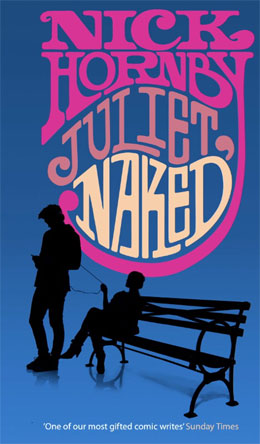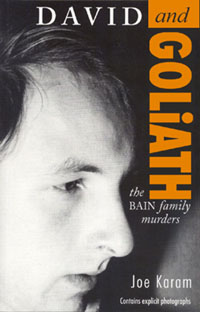skip to main |
skip to sidebar

This novel was Foer's first and at its release was incredibly successful. It tells the story of Jonathan Safran Foer travelling to the Ukraine searching for a woman who saved his father from the Nazis in World War II. He is accompanied on this adventure by his translator Alex Perchov, Alex's grandfather and Sammy Davis Jr. Jr. (the dog). Jonathan goes in search of Trachimbrod, where he believes his family's village was attacked by the Jews. We learn of the history of Foer's family, through a novel written by him (the character Foer) about his ancestors.
In Alex's letters to Jonathan we are given an often-amusing version of the English language. Alex, from Ukraine writes to Jonathan about his experiences, his dreams of moving to America and his troubled life at home with his father. The novel within this novel is filled with experimentation and reads like a manuscript with pages from a dream journal, fragmented words and diagrams. Throughout, Alex offers his own critique of Foer's manuscript in his broken English.
This book was critically acclaimed and while I believe parts of it are fully deserving of the huge amount of praise it received, it also led to a certain amount of disappointment of high expectations. That said, this is the second time I read this book and there were parts of it I didn't remember or understood more the second time around. The broken English of Alex Perchov is the sort of stuff that couldn't be written by anyone except someone with a perfect command of English and it is well done.
I recommend this book; a decent read and an interesting aside from the 'ordinary' novel.

I don't think I've ever read a book from this series although I have heard of Kay Scarpetta, the infamous heroine of a great number of Cornwell's novels. Obviously, this means I've missed a lot of the characterisation of Scarpetta, but she does seem to be notoriously unlucky. She is a pathologist, who of course also solves crimes, in this case of an evil serial killer who fills his victims' eyes with sand.
This book tries as hard as it can to be as gory as possible. The dead bodies are described in grim detail, some of the details are almost described almost exquisitely and one would think the dead bodies quite beautiful if he or she didn't know better. Many of the characters in this book are unrealistically emotive. There's Dr Self, the evil and quite possibly mentally unhinged bad gal and the alcoholic old friend Marino, who is slowly more and more becoming a character he does not recognise. Scarpetta's character was the most believable one, probably because there's been several books to build her up in.
The storyline was multi-faceted. Between all the things that happen/have happened to Scarpetta, you begin to wonder how much more unrealistic it can get and then it does. Despite all this, this is not an awful book. It has its good passages and there are some nice sentences in it. It definitely won't be going on my top list though.

When I was a child we had a video tape called "The Jetsons' Christmas Carol", embarrassingly enough I grew up thinking that the original of this story including the three Christmas ghosts were dreamed up in the head of the creators of the Jetsons. I was corrected a few years later, but I never actually read this book until this year. For a start, for Dickens, it's very short. I read it in a single night.
In it we are told the story of Ebenezer Scrooge, a bitter business man who is visited by the ghost of his old business partner, Marley who warns him that unless he changes his ways he will end up a miserable ghost. He is to be visited by three ghosts. The Ghost of Christmas Past reminds him of his innocent, kindly beginnings; The Ghost of Christmas Present (brilliant pun) shows him what is going on by those he knows and the Ghost of Christmas Yet To Come warns him what will happen if he continues as he is.
The book is full of Christmas spirit and is likely to fill even the most cynical reader with a sense of eventual joy. It also reminds the reader that greed will never lead to happiness and that kindness to others is one of the best ways to ensure a happy heart.
Read it!

This book for me didn't quite stand up to the rave reviews it's been getting. It's a good book, definitely well worth a read, but I don't feel like it's particularly memorable and it won't stick in my mind as one of the best.
It begins the story centred around Duncan and Annie - a couple who it feels like never should have been together, but have remained so for the purpose of convenience. Tucker is a die-hard Tucker Crowe fan. Tucker is your typical disappearing rock star. His few remaining hardcore fans try to trace his whereabouts through an online forum. When a new album is released - remixes of already released songs, Duncan writes a rave review which Annie clearly disagrees with. Annoyed by his amazing review, she posts her own and that's when Tucker Crowe emails her.
From here we are drawn into a strange set of happenings, where both Duncan and Annie realise how wrong they are for each other and Annie begins a friendship with a man who her Duncan had been and still is obsessed with. The book had an annoying ending, I know authors love to leave you wondering, but this one didn't really work for me. The characters were believable and identifiable though and the style led the reader through an assortment of emotions. For a book about music, it didn't go into a lot of detail but then I think that was part of the story.
I would recommend it, especially if you have enjoyed Hornby's style in the past, it is a good read.

As so many critics say, this book is probably about every parent's worst nightmare. Kevin Khatchadourian, the narrator's son opens fire on a select few of his classmates a few days before the Columbine shootings. Through Eva (his mother's) letters to her estranged husband Franklin, we learn about the relationship between her and Franklin and the decision to have kids. The book swings back and forth from nature to nurture as both Eva and the reader try to make sense of what caused Kevin to open fire on his classmates.
Eva seems ridden with guilt from the beginning. From a baby son who she can't connect with on any level whose actions throughout his childhood mirror those of a psychopath, as well as her constant suspicion of his motives swings the reader around. We are forced to confront the reality of school shootings and the many victims they leave behind. By alienating the narrator through these letters, we are shown the bare insides of Eva's insecurities, her guilts, her regrets and her explanations for Kevin's actions and we are shown some of his world as well through the visits she takes to the juvenile prison to see him. The reader is also treated to a delightful twist which keeps you guessing to the very last pages.
Of all the fiction written about school shootings, this book rings the most true for me. In a society ridden by needing someone to blame, Shriver opens our eyes to the shameless spiral of blame and some of the most enduring characters for me were the ones who almost seemed too good-natured to be true. Most of the book, these are the people who carry Eva through. Shriver is a talented writer who I would definitely be interested in following a little more. The subject is tackled poignantly and beautifully and the twists and turns leave you guessing to the very end.

In this amazing book, Brian Greene presents the intricacies of superstring theory in the same way that Stephen Hawking opened our eyes to black holes with A Brief History of Time. Greene first runs the reader through Newton's theory of gravity, Einstein's theories of relativity and special relativity as well as the beginnings of quantum mechanics and the lead-up to string theory.
String theory proposes that beyond the smallest particles found thus far, that is quarks, there exists tiny vibrating strings which form oscillating loop patterns. Greene talks the reader through the main principles of string theory including tension, symmetry and the energy of strings and their oscillating principles. We are introduced to the first theorists of string theory as well as the original hesitancy of the physics community to accept it firstly as a theory and secondly as a possible candidate for the elusive grand unified theory.
Greene also presents the idea of super-symmetry (which adds the 'super' to string theory). Theorists postulate that every elementary particle can be partnered by a 'super-particle' that differs by half a spin. This proposes a whole raft of new particles that's size and mass can be calculated theoretically but that have not been scientifically proven.
The third major proposal this book puts forward is that of hidden, "curled-up" dimensions, possibly that are so small we cannot see them. That is, we accept the three spatial dimensions and time as a dimension, but the current view of the physics world is now that of ten or maybe even eleven dimensions. Greene himself did some of the foremost research on this comparing the tiny dimensions to Calabi-Yau manifolds. These are virtually impossible to represent on a 2-dimensional page but Greene does a good job of creating these tiny dimensions in the mind of the reader, despite some initial brain fizzle.
I hold high hopes for the ability of the Large Hadron Collider to produce a Higgs boson
I can't really put everything in this book in the review because there is simply so much material. I highly recommend it to anyone interested in physics or in the nature of the universe. A brilliant read.

The murders of the Bain family occurred in 1994 in Every Street, Dunedin. On the 20th of June, Robin Bain, his wife Margaret and children Arawa (19), Laniet (18) and Stephen (14) were shot in the early hours of the morning. David was later arrested and charged with their murder. His conviction was overturned by the Privy Council in 2007 and a retrial in 2009 returned a 'not guilty' verdict.
In this book by Joe Karam (a former New Zealand rugby player, two main pieces of evidence that eventually contributed towards the overturned conviction are presented. Karam effectively pieces together the events leading up to the 20th of June and analyses the work of the Police who eventually arrested and charged Bain. In an unprecedented case in New Zealand, vital evidence was misplaced and moved. In addition to this, important tests which could have conclusively ended the case right there and then were not run. Furthermore, legal advice offered to David, as well as the evidence presented by his defence counsel in court was insufficient.
As well as outlining the failure of the Police to adequately deal with this case, Karam presents two vital pieces of evidence which he believes exonerate David from guilt. The first has to do with a pair of glasses and a misplaced lens and the second involves a message left on the computer and how quickly David could get back from his paper run. I found the second piece of evidence most helpful and most likely to point to the innocence Karam suggests, but I still don't believe the case is as open-shut as he suggests.
Additionally, Robin Bain displayed many more signs of someone likely to have a meltdown than David. He was about to be outed by his daughter, Laniet for sexual abuse throughout her lifetime, he was living in the caravan out the back of the property and he felt as though his world was falling apart. David on the other hand was doing well performing, had good friends and was doing the best he had in awhile.
Although it is clear that the Police investigation had many holes and that evidence was destroyed it is my opinion that no one will ever know who fired the gun that day. The evidence presented in this book is persuasive, enough so that it would and should have resulted in a not guilty verdict at the outset. But whether Bain will ever conclusively be able to prove his innocence, or whether he will be able to build a new life for himself after so many years in jail is another matter altogether.
I was impressed by Karam's writing. For some reason ex-rugby player didn't ring literary genius to me, but his argument was well presented, worded and would impress most lawyers.
I'd recommend this book to anyone interested in the Bain case.







